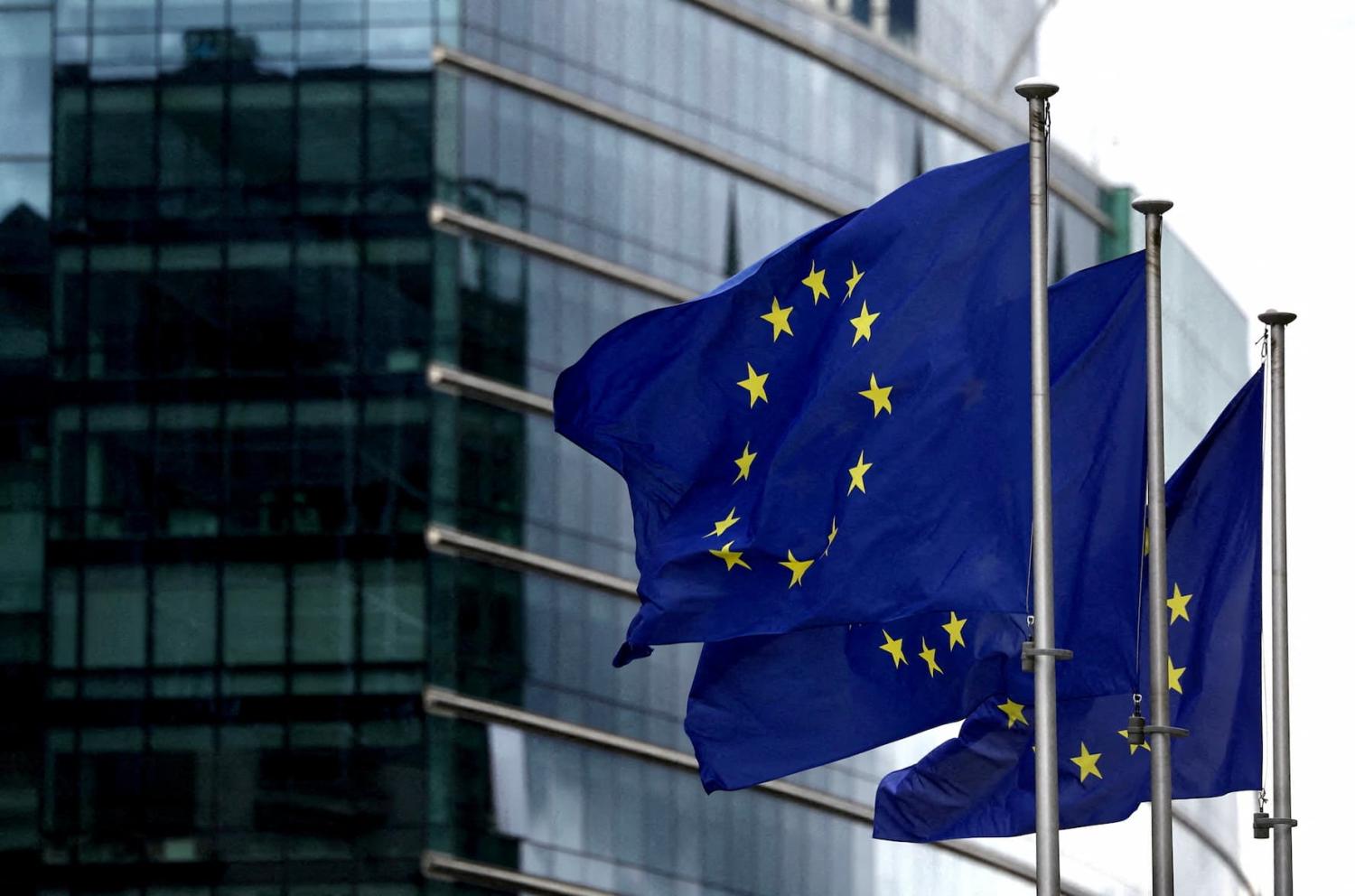The tech landscape in Europe has undergone a remarkable transformation over the past two decades. Once overshadowed by Silicon Valley, European tech companies are now making their mark on the global stage, driving innovation, and contributing significantly to the economy. But what exactly makes organizations stand out, and why should we pay attention to them? Let's dive into the dynamic world of European tech and explore the key players, emerging startups, and the future of this ever-evolving industry.
The Rise of European Tech Hubs

Berlin has earned the nickname "Silicon Allee" due to its thriving startup scene. The city is a magnet for young entrepreneurs and tech enthusiasts, offering a unique blend of creativity, affordability, and a robust support network. Home to companies like Zalando and N26, Berlin is a beacon of innovation and a hub for digital talent.
London: The Tech City
London, often referred to as the "Tech City," is another major player in the European tech scene. With its financial prowess and a diverse pool of talent, London has become a breeding ground for fintech companies like Revolut and TransferWise. The city's strategic location and strong infrastructure make it a prime destination for tech startups.
Paris: La French Tech
Paris is not just about art and fashion; it's also a burgeoning tech hub. The French government's "La French Tech" initiative has played a crucial role in fostering a vibrant startup ecosystem. Companies like BlaBlaCar and Deezer have put Paris on the map as a city of tech innovation and entrepreneurial spirit.
Stockholm: The Unicorn Factory
Stockholm is known for producing an impressive number of unicorns – privately held startups valued at over $1 billion. Companies like Spotify, Klarna, and King (the creators of Candy Crush) originated in this Swedish capital, making it a hotbed for tech innovation and a model for other European cities.
Key Players in the European Tech Scene
Spotify
Spotify, the music streaming giant, is one of Europe's most successful tech companies. Founded in Stockholm, Spotify revolutionized the music industry by offering a user-friendly platform for streaming music. With millions of subscribers worldwide, Spotify continues to lead the way in digital music innovation.
SAP
SAP, a German multinational software corporation, is a cornerstone of enterprise software solutions. Headquartered in Walldorf, SAP provides businesses with tools to manage operations, customer relations, and more. Its influence spans across various industries, making it a key player in the global tech market.
Adyen
Adyen, based in Amsterdam, is a global payment company that has transformed how businesses handle transactions. Known for its seamless payment solutions and impressive client list, which includes companies like Uber and Netflix, Adyen is a testament to Europe's prowess in fintech innovation.
Skype
Skype, although now owned by Microsoft, originated in Europe and was a pioneer in internet-based communication. Founded in Estonia, Skype changed the way we communicate, making video calls and instant messaging accessible to millions of users around the world.
Innovative Startups to Watch

Revolut
Revolut is a London-based fintech startup that offers banking services, including currency exchange, debit cards, and cryptocurrency trading. Known for its user-friendly app and innovative approach to banking, Revolut has quickly become a favorite among tech-savvy consumers.
Klarna
Klarna, another Stockholm-based success, is a fintech company that provides online payment solutions. Its "buy now, pay later" model has revolutionized e-commerce, allowing consumers to shop more flexibly. Klarna's innovative approach has made it one of the most valuable startups in Europe.
Deliveroo
Deliveroo, based in London, has transformed the food delivery industry. By connecting consumers with local restaurants through a user-friendly app, Deliveroo has made food delivery faster and more efficient. Its rapid growth and expansion into international markets highlight the potential of European startups.
N26
N26 is a German mobile bank that offers a fully digital banking experience. With its intuitive app and customer-centric approach, N26 has attracted millions of users across Europe. The startup's focus on transparency and convenience sets it apart in the competitive fintech landscape.
The Impact of EU Policies on Tech Development

General Data Protection Regulation (GDPR)
The GDPR, implemented by the European Union, has had a significant impact on tech companies. Designed to protect consumer data, GDPR has set high standards for data privacy and security. While challenging for businesses to implement, it has also fostered trust and transparency in the tech industry.
Digital Single Market Strategy
The EU's Digital Single Market Strategy aims to create a unified digital market across Europe. By removing barriers to online trade and fostering innovation, this strategy has paved the way for tech companies to expand and compete globally. It emphasizes the importance of a cohesive approach to digital policy.
Funding and Investment Landscape
Venture Capital in Europe
Venture capital (VC) in Europe has seen substantial growth, with an increasing number of investors willing to fund tech startups. Cities like London, Berlin, and Paris are hotspots for VC activity, providing essential capital to fuel innovation and growth.
Government Grants and Support
European governments are also playing a crucial role in supporting tech innovation. Through grants, tax incentives, and startup incubators, countries like Germany, France, and the UK are fostering a conducive environment for tech companies to thrive. These initiatives help reduce financial barriers and promote entrepreneurship.
Challenges Facing European Tech Companies

Regulatory Hurdles
Navigating the complex regulatory landscape in Europe can be challenging for tech companies. Strict data protection laws, varying regulations across countries, and compliance requirements can slow down expansion and innovation. Companies must stay agile and adaptable to succeed.
Competition from US and Asia
European tech organizations face stiff competition from their counterparts in the US and Asia. The dominance of Silicon Valley and the rapid growth of tech hubs in China and India pose significant challenges. To stay competitive, European companies must focus on innovation and strategic partnerships.
Talent Acquisition and Retention
Attracting and retaining top talent is a common challenge in the tech industry. With a global demand for skilled professionals, European companies must offer competitive salaries, excellent work environments, and opportunities for career growth to attract the best talent.
Success Stories and Case Studies
![]()
Spotify's Global Domination
Spotify's journey from a small startup in Stockholm to a global leader in music streaming is nothing short of inspirational. By focusing on user experience and constantly innovating, Spotify has maintained its edge in a highly competitive market. Its success underscores the potential of European tech to achieve global impact.
Adyen's Payment Revolution
Adyen's innovative payment solutions have revolutionized how businesses handle transactions. By providing a seamless and secure platform, Adyen has gained the trust of major global brands. Its success highlights the importance of understanding market needs and delivering exceptional solutions.
The Future of Tech in Europe

Emerging Trends
The European tech landscape is constantly evolving, with emerging trends shaping its future. Technologies like artificial intelligence, blockchain, and the Internet of Things (IoT) are gaining traction. These innovations have the potential to revolutionize various industries, from healthcare to finance.
Predictions for the Next Decade
Looking ahead, the next decade promises exciting developments for European tech. We can expect continued growth in fintech, advancements in AI and machine learning, and increased focus on sustainability and green technology. The future of European tech is bright, with endless possibilities for innovation and growth.
Conclusion
In conclusion, European tech companies are making significant strides on the global stage. From established giants like SAP and Spotify to innovative startups like Revolut and Klarna, Europe is a powerhouse of tech innovation. Despite challenges, the supportive ecosystem, coupled with forward-thinking policies and a robust funding landscape, positions Europe as a leader in the tech industry. As we look to the future, the potential for European tech to drive global change and inspire new generations of entrepreneurs is truly exciting.
FAQs
Q. What are the top European tech companies?
Ans: Top tech European companies include Spotify, SAP, Adyen, and Skype, each leading in their respective fields and contributing significantly to the global tech landscape.
Q. How does the European tech scene compare to Silicon Valley?
Ans: While Silicon Valley remains a dominant force, the European tech scene is rapidly growing with unique advantages like diverse talent, supportive policies, and a collaborative environment that fosters innovation.
Q. What are the main challenges for tech startups in Europe?
Ans: Tech startups in Europe face challenges such as navigating complex regulations, competing with established tech giants from the US and Asia, and attracting and retaining top talent.
Q. How is the EU supporting tech innovation?
Ans: The EU supports tech innovation through initiatives like the Digital Single Market Strategy, funding programs, and regulations like GDPR that protect consumer data and foster trust.
Q. What trends are shaping the future of European tech?
Ans: Emerging trends shaping the future of European tech include advancements in artificial intelligence, blockchain technology, the Internet of Things (IoT), and a growing emphasis on sustainability and green technology.



.webp)




